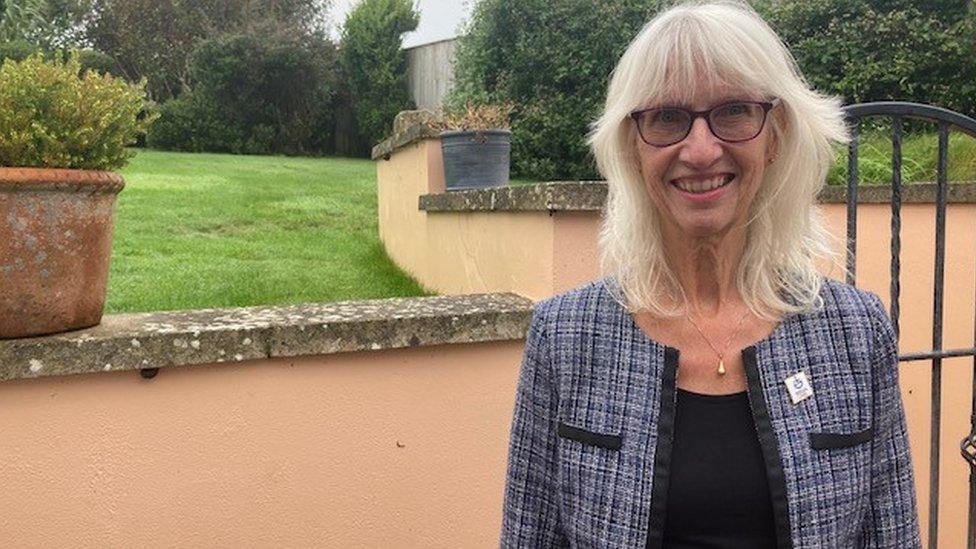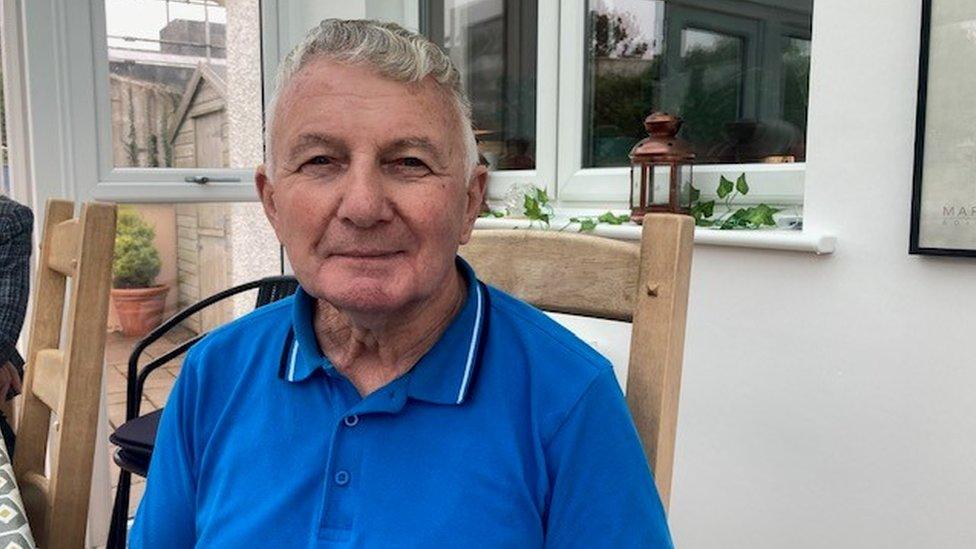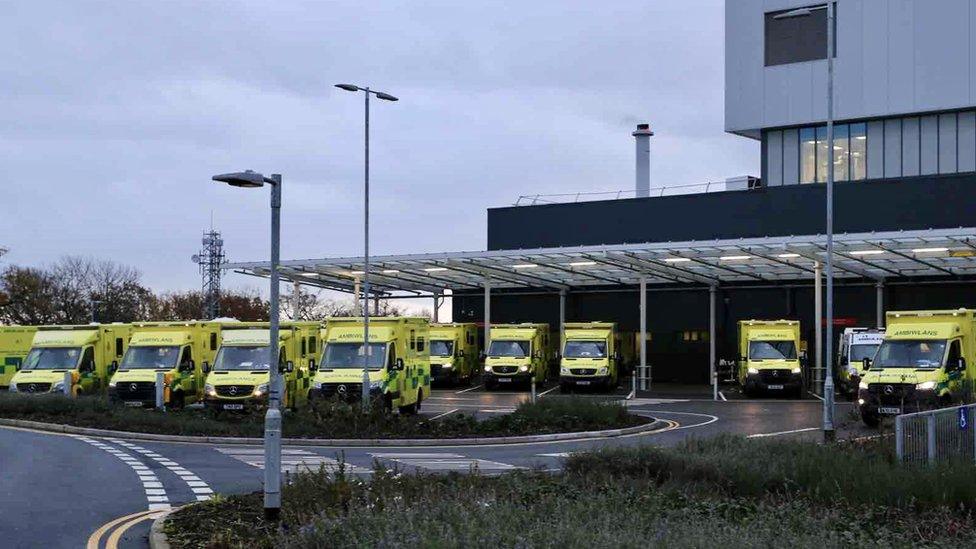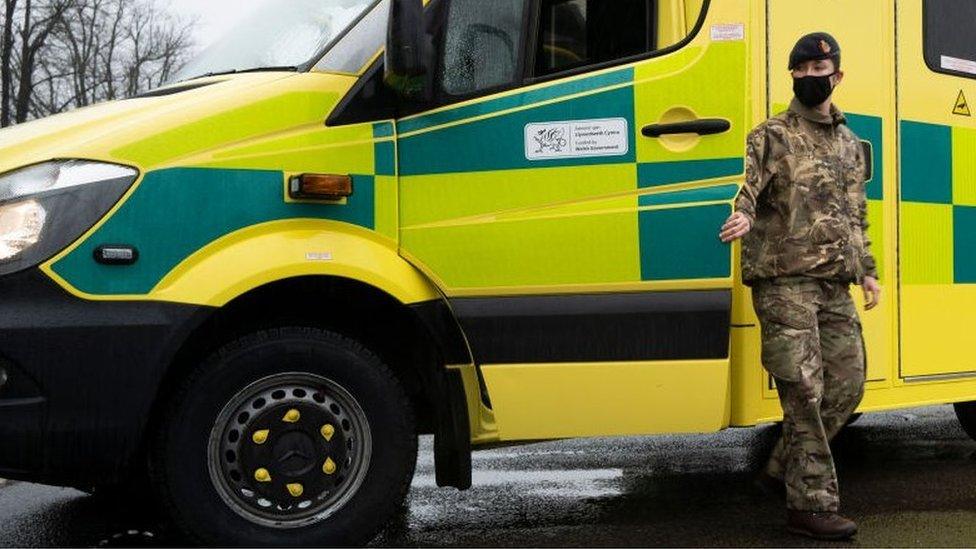NHS: People will die without changes, says ex-health boss
- Published
Dr Iain Robertson-Steel issued a "stark warning" that "delayed care costs lives".
People will die unless there is an urgent shake-up of NHS care, a former emergency medicine director has warned.
Dr Iain Robertson-Steel said ambulance delays and the lack of resources were the worst he had ever seen.
The former Withybush Hospital director, who lives in Solva, Pembrokeshire, has taken two elderly people to hospital himself as there were no ambulances.
The Welsh Ambulance Service apologised, saying there had been "well-documented pressures on our service" recently.
Dr Robertson-Steel said there was an urgent need to address the crisis: "In rural areas with long journey times, you have to have an effective ambulance service, so it's important that the numbers shouldn't be reduced.
"If we fail to deliver prompt care for coronary disease, strokes and sepsis, lives will be lost unless we reorganise.
"It's a stark warning but it's a message that many of my clinical colleagues and I have been putting out for some years - there's no doubt that delayed care costs lives."

Lena Dixon says volunteers should not have to pick up the slack in key services
In one case, a 94-year-old had fallen in his home, knocking himself unconscious on a radiator.
He spent more than eight hours lying on the floor due to ambulance delays and was initially helped by Lena Dixon, a volunteer for a social care charity called Solve Care.
"We are a charity, we rely on volunteers. We should not have to deal with things that should be done by statutory services," she said.
"People in this village should be able to feel that, when they need support, they should get it and not have to lie on a floor for eight hours."
Ms Dixon said the man, who was very distressed and in a lot of pain, was eventually treated in hospital but remained confused.
"I feel that if it happens to me, I just want to drop dead - I don't want to lie on a floor and wait for something that might not turn up," she added.

Des Page was told he would have to wait three hours when he rang 999 after suffering chest pains
Dr Robertson-Steel and his wife Lesley, herself a retired nurse, also helped 81-year-old Des Page who was suffering severe chest pains, but was told it would be at least a three-hour wait for an ambulance.
Mr Page said he did not know what would have happened without their help and thinks people in rural areas are being forgotten.
"We're half an hour away from the hospital and you've got to depend on an ambulance - it's frightening. I thought waiting that long a time was ridiculous really.
"I think there should be more ambulances provided and that the government should put more money into the NHS."
Last week, a report from Health Inspectorate Wales found that long delays for ambulances outside hospitals were having a detrimental impact on the NHS's ability to care for patients.
This week, the Army is being drafted in to help, but Dr Robertson-Steel, who was also director of the West Midlands ambulance service, said that was a temporary measure and the problem was not being taken seriously enough.
"We don't need more meetings, more pilot projects, more reports, we actually need an action plan to deliver recovery for the NHS and social care," he said.
A recent proposal to cut the number of ambulances in Pembrokeshire from seven to five, external has drawn widespread criticism.
The Welsh Ambulance Service said a review of resources in Hywel Dda health board, which covers south-west Wales, had been paused in order to ensure the right number of staff and vehicles could meet demand.
Dr Brendan Lloyd, executive medical director at the Welsh Ambulance Service, said: "We apologise to all of those patients who have had a poor experience of our ambulance service, including the two patients that Dr Robertson-Steel came to the aid of.
"Hospital handover delays coupled with staff absence and high levels of demand for our services have significantly hampered our ability to get to patients quickly."
Related topics
- Published7 October 2021

- Published22 September 2021
